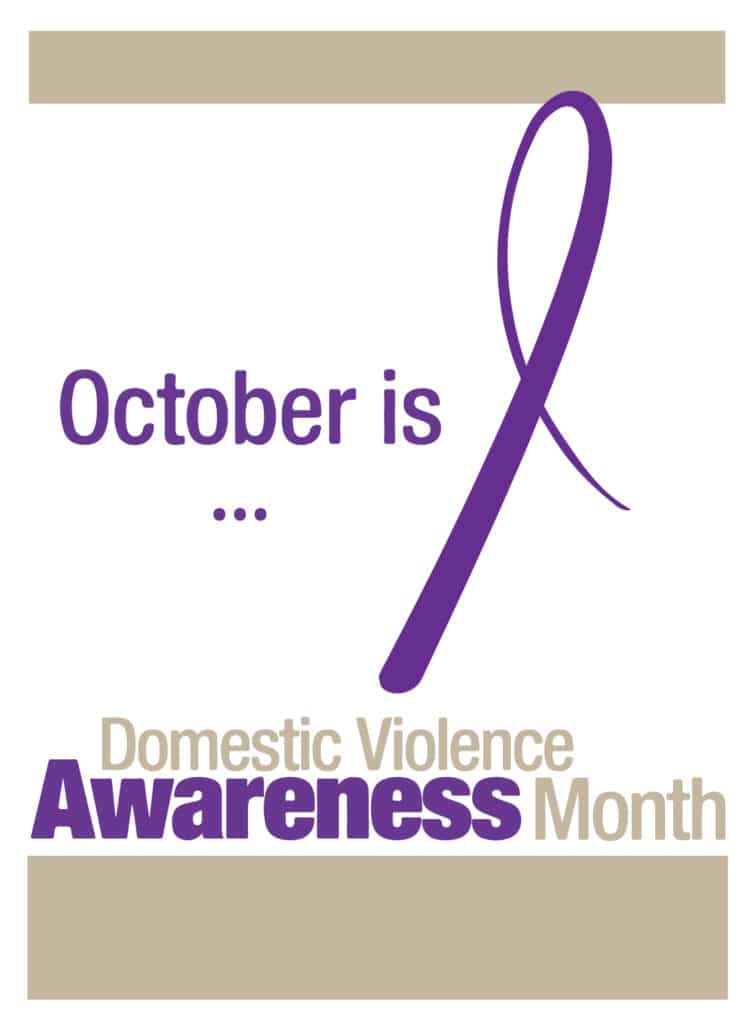
October is National Domestic Violence Awareness Month, which began in 1981 by the National Coalition Against Domestic Violence (NCADV).
What is Domestic Violence?
The National Coalition Against Domestic Violence (NCADV) defines Domestic Violence as (this link opens on the NCADV website, an independent, nonprofit organization):
Domestic violence is the willful intimidation, physical assault, battery, sexual assault, and/or other abusive behavior as part of a systematic pattern of power and control perpetrated by one intimate partner against another. It includes physical violence, sexual violence, psychological violence, and emotional abuse. The frequency and severity of domestic violence can vary dramatically; however, the one constant component of domestic violence is one partner’s consistent efforts to maintain power and control over the other.
Domestic violence is an epidemic affecting individuals in every community regardless of age, economic status, sexual orientation, gender, race, religion, or nationality. It is often accompanied by emotionally abusive and controlling behavior that is only a fraction of a systematic pattern of dominance and control. Domestic violence can result in physical injury, psychological trauma, and in severe cases, even death. The devastating physical, emotional, and psychological consequences of domestic violence can cross generations and last a lifetime.
Is Domestic Violence Always Physical Abuse?
It is important to note that domestic violence does not always manifest as physical abuse. Emotional and psychological abuse can often be just as extreme as physical violence. Lack of physical violence does not mean the abuser is any less dangerous to the victim, nor does it mean the victim is any less trapped by the abuse.
The Power and Control Wheel is a tool to help you understand and identify patterns of abuse in both physical and non-physical forms. This version is from https://www.ncdsv.org/publications_wheel.html (this link opens on the NCDSV website, an independent, nonprofit organization). On their website, you will find more power and control wheels developed for specific groups, such as children and the elderly:
 Loading...
Loading...For anonymous, confidential help available 24/7, call the National Domestic Violence Hotline at 1-800-799-7233 (SAFE) or 1-800-787-3224 (TTY).
Please see our Resources page for Fannin County family crisis and victim services resources.